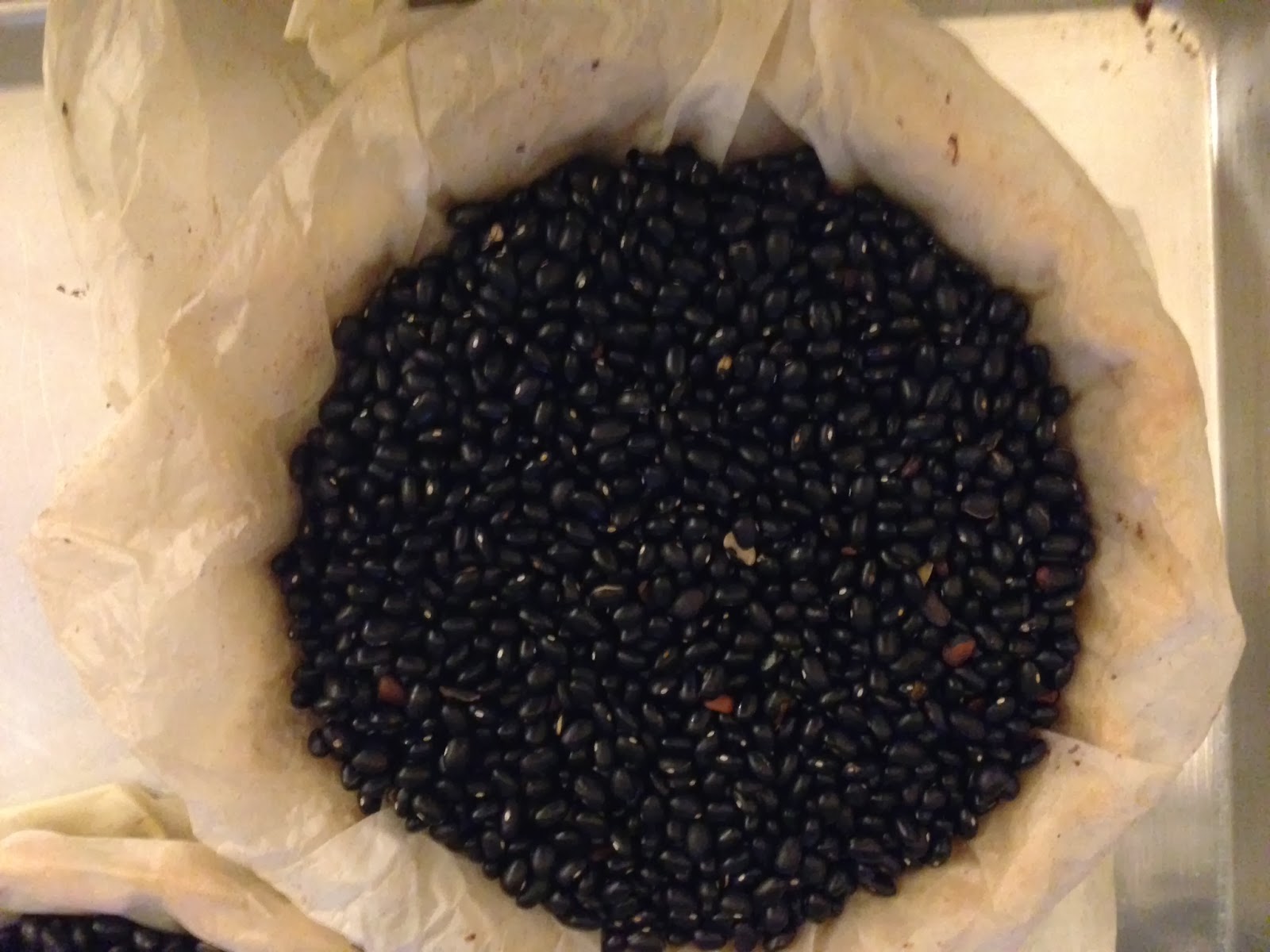Two things happened at work last week prompting this post.
One, (cue Jaws music) there's been talk about that upcoming February holiday.
The one centered around Conversation hearts and way too much pink and red. And
two, the following scene took place just the other day.
Someone came into the bakery and wanted to buy a
blind-baked pie shell. No lie. With the parchment paper and beans still nestled
inside. Really? Really. The exchange went
like this:
Woman- What kind of pie is that?
Me- It's not a pie. It's a blind-baked shell.
Woman- Okay.
Me- Okay.
Woman- That'll be fine.
Me- Um, you can't buy it...
Woman- Why?
Me- Why? (Why am I having this conversation?) And so
it went. She insisted. I explained. It was lined with parchment paper and
beans. Not for the eating. Nor for the buying.
She had never heard of such a thing. Clearly. She wanted it but couldn't
have it. Which judging by her just-back-from-Boca tan and perfectly manicured
nails, she was unaccustomed to hearing.
This exchange got me thinking about the whole blind-baking
process. I have to say I've often thought that the term blind-bake is, well, a
touch awkward. I know what it means, but who coined the phrase? So I looked it
up- here's what I unearthed. According
to most culinary handbooks, (specifically Bernard Clayton Jr.'s Complete Book of Pastry: Sweet and Savory), blind baking is simply pre-baking a crust by lining
it with parchment paper and beans. The general consensus is this helps to
prevent two things from happening; unduly shrinkage and puffing up. (Elizabeth Arden Ceramide Gold Ultra Restorative Capsules might make the same claim, but have no place whatsoever in a pie). What I hadn't realized was rumor has it "baking blind" also refers to the underling
doing the blind baking; left in the 'dark’ as to what the filling will be.
Perhaps. But since I’m always the one responsible for the blind bake as well as
removing the SCORCHING HOT paper and beans from the shells, I think that’s
unlikely. Readying a filling with recently burned fingertips, is standard practice. I see (no
pun intended) no distinction between the blind-baker and the baker.
They are the same person. Me. You need a blind-baked crust when making a pie
with a filling that doesn't get baked (cream pies, chiffon pies) or when you
don't want a soggy-bottomed fruit pie. That's pretty straight-forward.
There's an inimitable smell to blind baking, not
particularly fragrant in a good way. Once the beans that are doing the weighing
down have baked, they take on a roasty quality. And since hard-core bakers
re-use the beans, that fragrance only becomes more intensified. Kind of reminiscent of wild hickory nuts
roasting over an open fire. On a Manhattan street corner. Opposite Penn
Station. In December. You get the
idea. When I worked in commercial
establishments, we kept an enormous burlap sack of blind bake beans. It's one of those nasal wake up calls that
you never forget. It can permeate a house in a matter of moments. Just ask my kids.
So I was taken aback that someone would actually look at
a pie shell lined with parchment and toasted-til-crisp beans and want to make
it their own. But what do I know. The retail buying public can be strange
creatures.
On the home front, I’d like to make something for
dessert. Not that there’s anything wrong with Trader Joes graham crackers and
marshmallows taking a quick spin in the oven. I'm still reeling from the
conversation I had with the Boca woman, thus opting out of anything requiring a
pre-bake. I have a pitcher of homemade caramel sauce (thank you, Barbara for the Macrina bakery book) and a few apples clamoring for attention. Kismet. I decide on some hand pies.
Another thing- after too many years in the baking
business, I know it's highly unlikely that come February I'll be baking any
heart shaped anythings at home. So I'll
do it now- as they say in an old movie musical from 1956, "Now. When else?
Now is always best time."



No comments:
Post a Comment